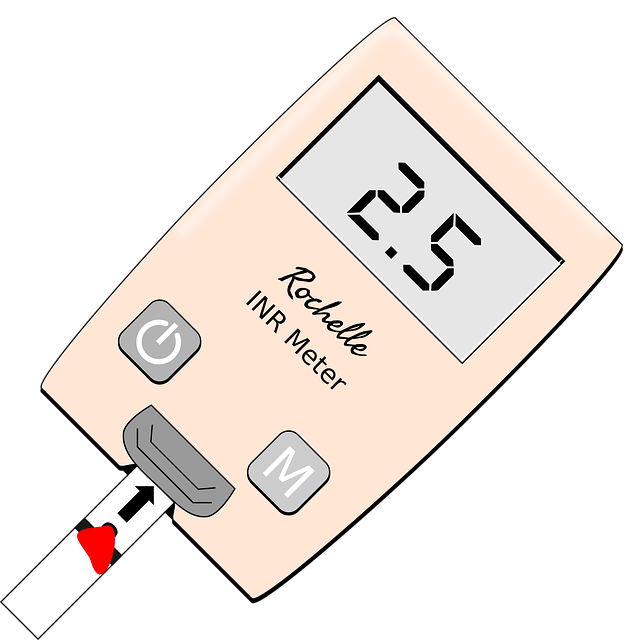The UK Advanced Thyroid Blood Test is a comprehensive diagnostic tool that assesses thyroid function and iron status, helping healthcare professionals accurately diagnose and treat iron deficiencies. Ferritin, an 'iron storage protein', is a key biomarker; low levels (below 20-30 mcg/L) indicate potential deficiency, prompting tailored treatments like dietary changes or supplements to manage root causes and prevent long-term health issues.
Iron deficiency is a common health concern, but diagnosing it accurately can be challenging. This is where ferritin level testing plays a crucial role. Understanding ferritin—a protein that stores and releases iron in the body—is key to identifying iron deficiency. The UK Advanced Thyroid Blood Test offers an in-depth look at ferritin levels, providing valuable insights into potential iron deficiencies. By interpreting test results accurately, healthcare professionals can effectively manage this condition, ensuring optimal health outcomes.
- Understanding Ferritin: The Key to Iron Deficiency Diagnosis
- UK Advanced Thyroid Blood Test: Unlocking Insights into Iron Levels
- Interpreting Results and Managing Iron Deficiency
Understanding Ferritin: The Key to Iron Deficiency Diagnosis
Ferritin, often referred to as the ‘iron storage protein’, is a crucial biomarker in diagnosing iron deficiency. It plays a vital role in understanding and managing this common nutritional disorder, especially in the UK where advanced thyroid blood tests are readily available. Ferritin levels in the blood reflect the body’s iron reserves; low ferritin indicates insufficient iron storage, which can lead to anemia and other health issues.
When considering iron deficiency, a UK Advanced Thyroid Blood Test may include measuring ferritin levels as part of its comprehensive assessment. This simple test provides valuable insights into an individual’s overall iron status, helping healthcare professionals diagnose and treat any underlying deficiencies effectively. By interpreting ferritin values, doctors can determine the severity of iron scarcity and tailor treatment plans accordingly.
UK Advanced Thyroid Blood Test: Unlocking Insights into Iron Levels
In the UK, the UK Advanced Thyroid Blood Test emerges as a powerful tool for assessing iron deficiency and related conditions. This comprehensive test goes beyond basic measurements by evaluating various thyroid markers alongside ferritin levels. By examining factors such as T3, T4, and TSH, healthcare professionals can gain deeper insights into an individual’s thyroid function and overall iron status.
The UK Advanced Thyroid Blood Test is particularly valuable for individuals presenting with symptoms suggestive of iron deficiency, even if initial screenings seem normal. It helps unravel complex interactions between thyroid hormones and ferritin, enabling more accurate diagnoses and personalized treatment plans. This advanced approach ensures that those at risk receive the appropriate care, addressing not just iron levels but also the intricate interplay within the endocrine system.
Interpreting Results and Managing Iron Deficiency
Interpreting Results and Managing Iron Deficiency
After completing a UK Advanced Thyroid Blood Test, understanding your ferritin levels is crucial in diagnosing iron deficiency. Ferritin, a protein that stores iron in the body, serves as an important indicator. Levels below 20-30 micrograms per litre (mcg/L) are generally considered low and suggest possible iron deficiency. However, interpretation should consider individual factors like age, sex, and overall health.
Managing iron deficiency involves addressing the underlying cause. Dietary changes, such as increasing iron-rich foods, can be beneficial. In some cases, medical intervention through iron supplements or, for more severe deficiencies, injections might be recommended. Regular monitoring of ferritin levels post-intervention is vital to ensure effective management and prevent long-term health complications.
Ferritin level testing, especially through the UK Advanced Thyroid Blood Test, offers a powerful tool for diagnosing iron deficiency. By understanding ferritin’s role in storing and transporting iron, healthcare professionals can interpret test results accurately and manage deficiencies effectively. This advanced blood test provides valuable insights into an individual’s iron levels, enabling tailored treatments to address this common yet significant nutritional gap.
